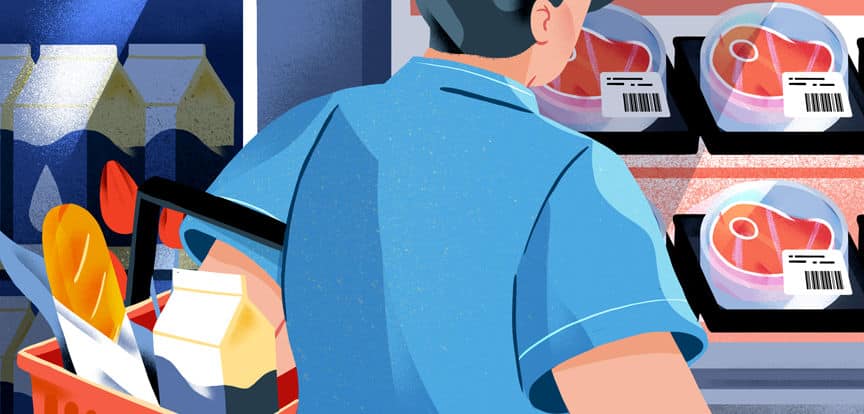Newsletter Signup - Under Article / In Page
"*" indicates required fields
The Israeli firm Future Meat Technologies has raised a neat €308M ($347M) in the biggest financing round in the field of cultured meat to date. The company claims rapid progress in addressing scaling bottlenecks that slow the sector’s growth.
A range of contributors pitched into the mammoth funding round including an undisclosed tech investor, ADM Ventures — the venture capital arm of the US food processing giant Archer-Daniels-Midland — and the UK-based Manta Ray Ventures.
Future Meat is one of many firms in the emerging cultured meat sector, where meat is grown directly from cultured animal cells. The goal is to reduce the amount of land, resources, and animal slaughter required to meet humanity’s protein demand. Future Meat is developing a range of products including cell-based hamburgers, chicken breast, and kebab meat.
“This financing consolidates Future Meat’s position as the leading player in the cultivated meat industry, just three years after our launch,” said Yaakov Nahmias, founder and president of Future Meat, in a public statement.
In 2020, cultured meat firms globally raised €319m ($360M) — six times more than in 2019. Future Meat’s €308M Series B round alone nearly matches this sum. With the cash in hand, Future Meat plans to build a large-scale production facility in the US in 2022. The firm is focusing on obtaining US approval of its cell-based chicken before it expands to other regions.
This year promises even more funding going to cultured meat companies. One example is Good Meat, the cultured meat arm of the US firm Eat Just, which has raised €236M ($267M) so far this year. Eat Just’s cell-based chicken became the first cultured meat product to receive marketing approval last year when Singapore gave it the green light. Another Israeli cultured meat developer, Aleph Farms, raised €89M ($105M) in its own Series B round in July.
In Europe, meanwhile, multiple big rounds have been raised this year by the likes of Meatable, Gourmey, and Mosa Meat. And the Brazilian meat giant JBS acquired the Spanish cultured meat startup BioTech Foods in November.
“Funding for cultivated meat companies through the end of [the third quarter of] 2021 was already up 184% compared to all of 2020, and this doesn’t even take into account the $347M raised by Future Meat Technologies,” said Carlotte Lucas, Corporate Engagement Manager at the Good Food Institute, a non-profit organization dedicated to accelerating research into meat alternatives.
A September article from The Counter voiced concerns over the economic performance of cultured meat technology; production plants will find it very difficult to compete at a large scale with traditional slaughterhouses. Reasons include the need for expensive serum to nourish the cells, and the requirement for costly cell growth facilities.
“You can make a big plant, or you can make a clean plant,” David Humbird, chemical engineer and author of a report on the cultured meat sector for the investment entity Open Philanthropy, told The Counter. “So if you want to feed millions and millions of people, it’s got to be big. But if you want to do it with animal cells, it’s got to be clean. We need both, and you can’t do that.”
In November, Mosa Meat welcomed the analysis from The Counter in a detailed blog post, with the argument that scaling up the technology could be feasible with continued investments and innovation.
“It’s far too early to be certain if and when cultivated meat will be produced at industrial scales and affordable prices,” noted Lucas. “As we’ve seen with smartphones, solar panels and genome sequencing, many impactful technologies that now shape our lives were unimaginable before key scientific breakthroughs made them possible.”
“Cultivated meat companies and scientists have already successfully challenged many historical assumptions about animal cell culture, and we have far from exhausted the creativity of researchers in this field.”
Nahmias disagreed with the criticism, saying that the calculations are based on stem cell approaches, which is different to Future Meat’s method. Instead of using stem cells or muscle cells as the basis for the meat, the company uses fibroblasts, which are the cells that make connective tissue such as scar tissue. These cells are more resilient than stem cells and can be grown in vats more easily.
“Our proprietary media rejuvenation technology enables cell densities greater than 100 billion cells per liter, translating to production densities 10 times higher than the industrial standard,” stated Nahmias.
According to Future Meat’s latest announcement, the company has already exceeded expectations in bringing down the cost of manufacturing its chicken meat. Each 110-gram chicken breast costs €1.50 ($1.70) to produce — less than half of what it cost six months ago.
While 2020 saw soaring demand for meat alternatives, the last six months have seen stagnating consumer interest in plant-based meat products. In November, for example, Beyond Meat’s stock fell by 19% as its sales fell short of expectations. As cultured meat technology matures and enters the market, some analysts see cell-based meats outshining plant-based products in the coming years.
“With everyone eating at home, Covid-19 created a unique atmosphere for incredible retail sales growth for plant-based foods, so it’s no surprise that the industry couldn’t maintain that growth rate as the world started to open up,” said Lucas. “But if you take a step back and look at the overall trajectory of the industry, demand from consumers is continuing to grow.”
“I feel like the meat-alternative field is inherently limited, as most people still seek the real thing,” said Nahmias. “This is where cultured meat is fundamentally different from existing alternatives; we aren’t an alternative, we are the real thing.”
23 December 2021: Article updated with comments from Future Meat Technologiesrnrn rnrnCover image via Elena Resko
Are you interested in sustainable agriculture and food R&D?







